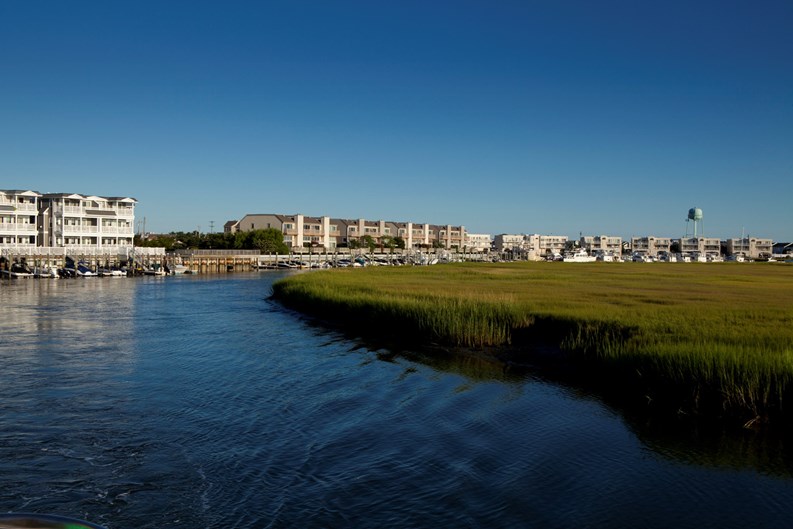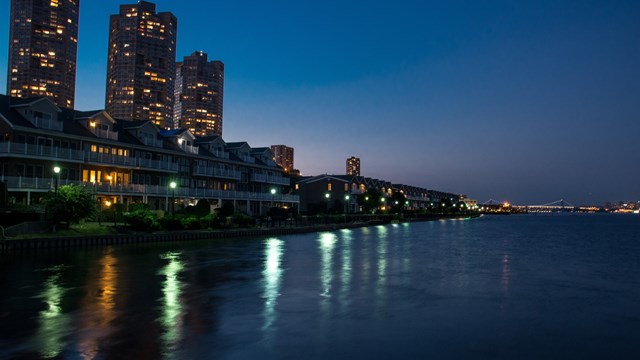A legal battle is ongoing between a New Jersey condo association and a conservation group over public waterway access via private property. New Jersey state law provides for some very specific rules when it comes to waterway access. The state has a long-standing legal tradition based on case law that goes back over 100 years. It designates public access to certain waterways, even when the physical means of access to those waterways is privately owned. A current case in point is Hudson River Waterfront Conservancy of New Jersey vs. Admiral’s Walk Condominium Association.
The Case in Point
This case is important, "Because it deals with public access to the waterfront, the public’s ability to use it and enjoy its views and nature,” says Scott Piekarsky, an attorney with law firm Phillips Nizer, located in Hackensack. “Here in New Jersey we have long-established case law regulating access. This law and case precedent is established - it stretches back more than 100 years. The walkway we are speaking about is a public walkway which runs from the George Washington Bridge approximately 18 miles to Bayonne. New Jersey’s public trust doctrine indicates that the public has access to the state’s waterfronts for their enjoyment, whether that waterfront is the ocean or the Hudson River. The Hudson River Conservancy is a group that uses the riverfront, and specifically this area from the George Washington Bridge down to the Lincoln Tunnel. It’s a busy, well-developed area - a real metropolis, and use of this waterfront is a year-round thing.” (Piekarsky notes that this law applies only to tidal waters, such as the aforementioned rives and ocean - not to landlocked bodies like lakes or ponds.)
The crux of the case is that the Admiral’s Walk Condominium Association refused non-residents access to the portion of the walkway that crosses association property. Piekarsky, who represented the Conservancy in the case, explains that their refusal, “constitutes a taking. We challenged them - and the Chancery judge said access must be given.” The decision was handed down on January 14, 2023, and the condominium association does have the right to appeal. A conference was held mid-February to discuss the parameters of the access, but as of this writing, there’s no final order yet.
Continuing the Privacy vs. Public Access Fight
“The condominium association is likely to file an appeal,” says Piekarsky. “In law, there are appeals based on both procedure and substance. Here they are arguing substance; they’re saying that the public trust applies to access to ocean waters, not a river.” In effect, the condo association maintains that their property is a small piece of the puzzle - so why should they be singled out? They’re arguing that the town should provide a shuttle for those wishing to access the waterway.
For his part, Piekarsky feels the condominium association is ‘throwing darts.’ “Substantive law here is very strong,” he asserts. “They don’t have a leg to stand on. There aren’t any privacy issues here. The condominium just doesn’t want third-party foot traffic on their property. In addition, they maintain that a walkway takes away parking spots and eats up common elements.” The high-rise building was built around 30 years ago, and the access issue has been in dispute - including previous litigation - for a number of years now. The Conservancy finally pushed to litigate in this latest round of dispute.
“We tell our clients when they are affected by this law that there is a legal right to walk there,” says Piekarsky. “We can’t stop it, but maybe we can lessen the impact. We see if we can come to some kind of agreement for a buffer of trees or something, so they don’t see each other. Compromise is the best route to a solution here.”










Leave a Comment